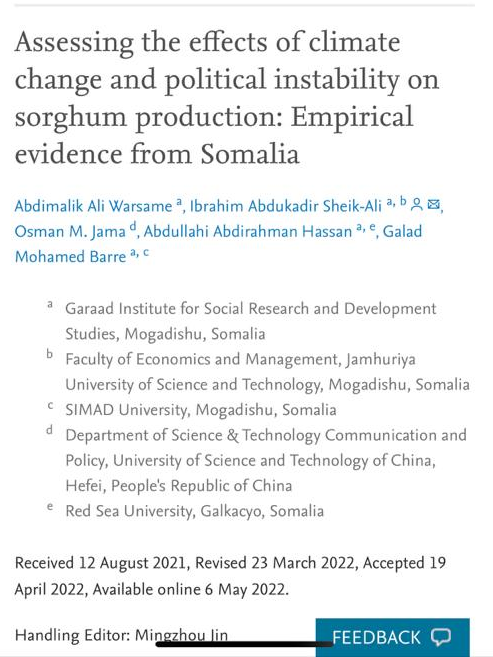
Assessing the effects of climate change and political instability on sorghum production: Empirical evidence from Somalia
- Post by: admin
- May 26, 2022
- No Comment
Abstract
Climate change induces a devastating effect on agricultural production in Somalia leading to crop yield to decline including sorghum. To this end, this study aims to ascertain the long-term and casual impacts of climate change – rainfall and temperature – on sorghum production in Somalia for the 1980–2017 period while accounting for the role of political instability, land under sorghum production, and agricultural labor. The empirical result demonstrates that average temperature, political instability and agricultural labor significantly hamper sorghum production in Somalia in the long-run, whereas average rainfall – albeit insignificantly – and area under sorghum production enhance sorghum production in the long-run. In contrast, a unidirectional causality is established from political instability to sorghum production. Based on empirical results, the study recommends to policymakers enact policies aimed to eliminate conflicts to create a stable environment, and establishing a crop diversification plan in land under cultivation that would eliminate volatility caused by climatic and biological variations and accelerate the shift from low-productivity to a high-productivity economy.
